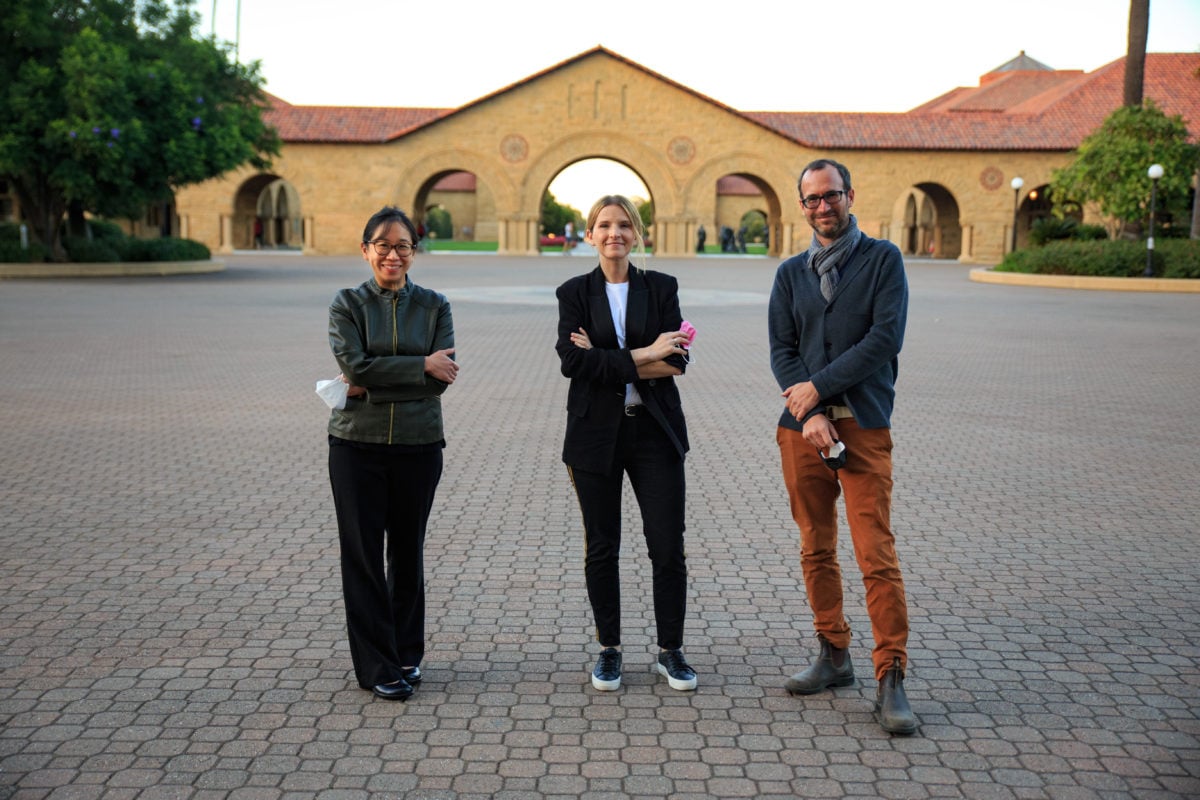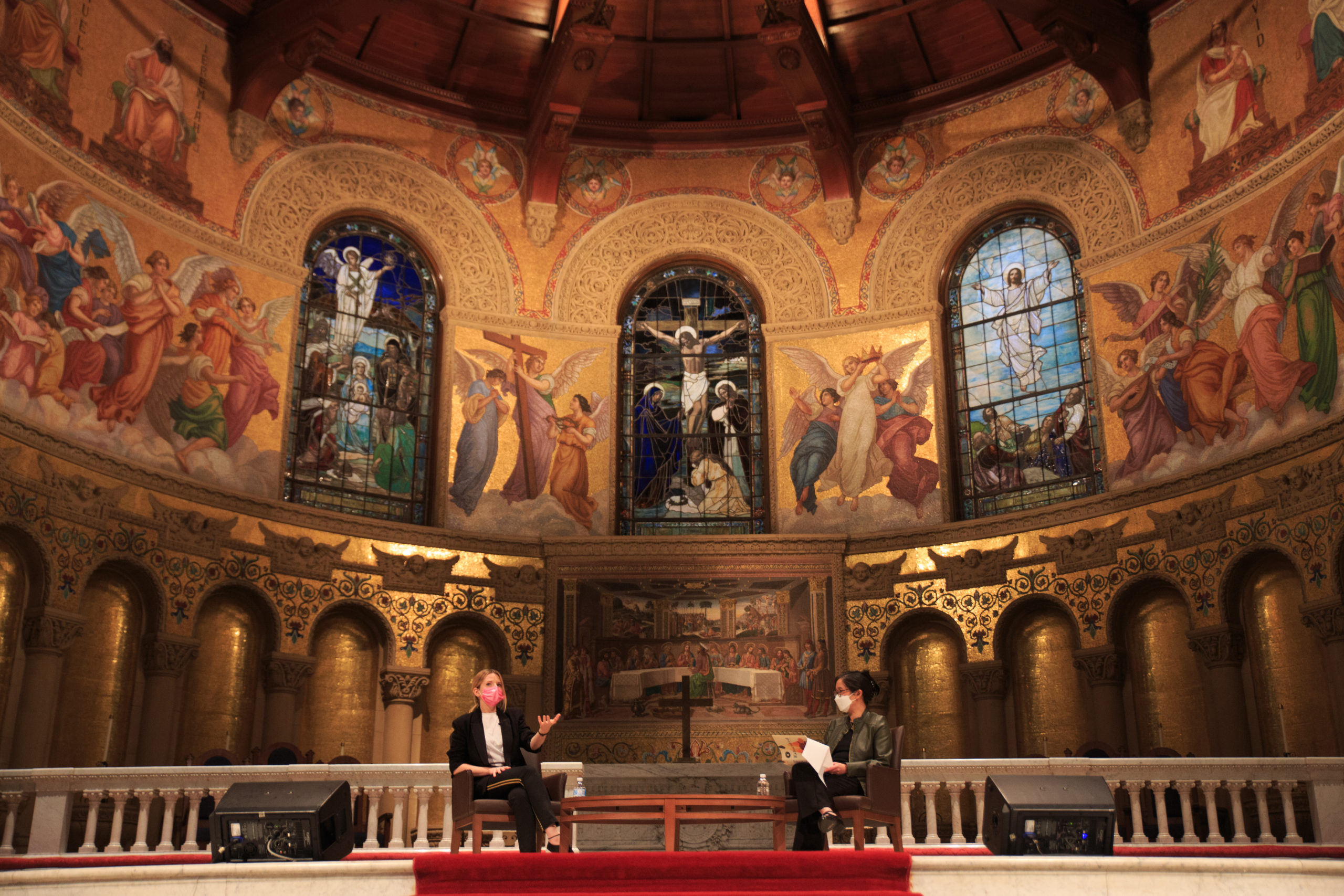“Oh my goodness,” my friend Karsen Wahal ’25 muttered to me as we speed-walked into the dim glow of Memorial Church, our cheeks rosy from the unexpected chill of sundown. “Does this mean she’s going to be giving this talk before God?”
I was thinking the same thing: That it was ironic, really, this juxtaposition of a speaker who had split from her faith against such a religious setting.
But Tara Westover knows all about irony.
After all, to go from stewing herbs and salvaging spare auto parts to getting a Ph.D. at Cambridge is to cross literal oceans of thought. Westover’s moving 2018 book, “Educated: A Memoir,” recounts her experience growing up in a survivalist, religious family and narrates the unlikely events that brought her to Brigham Young, Cambridge, Harvard — and on Tuesday night, to Stanford.
For the 2021-22 academic year, Westover’s book was included in the University’s annual Three Books program for frosh and transfers. As part of the inaugural COLLEGE curriculum, a series of first-year core classes focused on civic, liberal and global education, religious studies associate professor Kathryn Lum moderated a discussion with Westover on the themes of “Empathy, Perspective and Hope.”
Westover and Lum discussed how education can open doors. For example, at the book talk, Westover explained that one of her first encounters in the classroom centered the Civil Rights Movement. In what Westover told us was “an unfortunate misunderstanding,” she assumed that Rosa Parks had physically stolen a seat from the bus, not that she had sat in a prohibited location. Before her education, Westover understood that “people got arrested for stealing, not for sitting.”
Telling this story to the laughter rising from the pews at the Tuesday night event, Westover went on, saying that at the time she was confused by how Parks could steal a bus seat; it’s fairly difficult.
“I grew up doing work in a junkyard, so I had removed quite a few seats in my day,” Westover said. “I wondered why someone would do that. It’s quite hard to do that.”
Despite the humor in this anecdote, Westover used this testimony to showcase the importance of education. After this experience in the classroom, Westover explained that she spent time connecting the Civil Rights Movement chronologically with what she had been told about her parents’ childhood. She learned to ask questions and think about context.
Westover said that this led her to understand that “everything we know about the past is told to us by someone,” and that “a defining feature of the past is that none of us were there.”

At the event, Westover also discussed complicated family relations, a common theme in her book. She explained that after being rejected by her father for years, he offered a “welcome home” if she recanted her recent “educated” actions, like receiving federal funding and utilizing medical care. Westover refused; she realized that the cost of her father’s acceptance would be to exchange her reality for someone else’s reality, which was “too high of a price to pay.”
In order to cope with difficult relationship tensions, Westover said that it is important to unlearn disassociation as defragmentation, which she described as knowing the difference between saying something sad while letting yourself feel sad and saying something sad while laughing it off, or “having the emotions that go with the memories you have.” According to Westover, this process is important because creating this attachment between feelings and moments is necessary for substantial healing.
Westover said that she doesn’t believe she processed this emotional skill when writing “Educated: A Memoir.” Like all things, writing is a learning process, a “practice of reflection,” Westover explained, that is especially important when emotional healing is happening — even while emotional baggage is being shrugged away.
As I turned my head to the heavens (or rather, the ceiling), Westover brought me back to earth. I became acutely attuned to where I was as she concluded that “education can be a form of faith.”
Perhaps the juxtaposition of speaker and setting was not as ironic as I’d thought.
